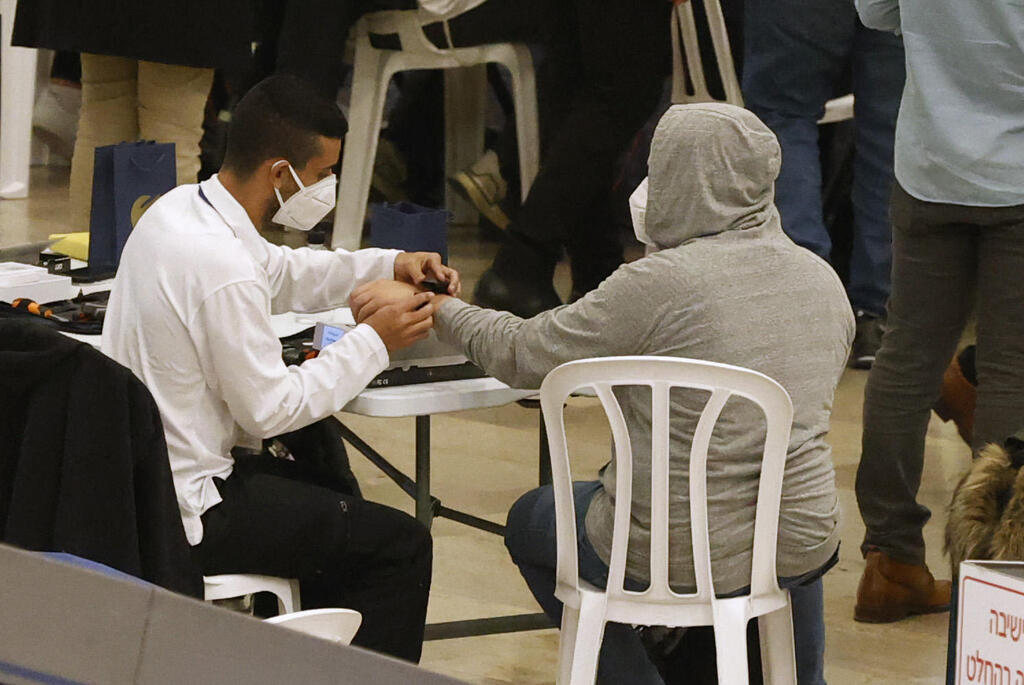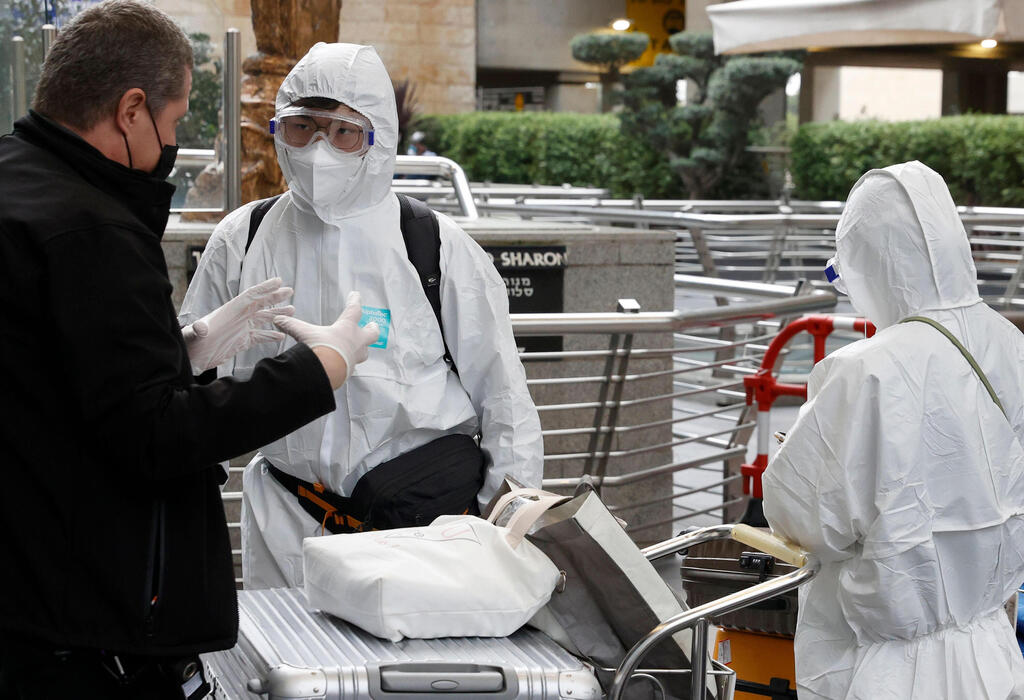Getting your Trinity Audio player ready...
Israel is tightening entry regulations as part of efforts to prevent new strains of the coronavirus from entering the country via Ben-Gurion International Airport, coronavirus czar Prof. Nachman Ash told Ynet on Wednesday.
Ash said that the ministers were due to vote virtually Wednesday on new measures to help prevent the entry of the variants.
Ash cited a potential ban on arrivals from countries that have already triggered a travel warning due to high rates of infection, such as India, Brazil, Mexico, Turkey, Ethiopia and South Africa.
Israel has seen its infection rates plummet since the start of its vaccine rollout campaign in December, and has now fully vaccinated more than 80% of its adult population.
Ash said even without a travel ban, all new arrivals from these countries will in future have to enter quarantine as well as testing, regardless of whether they are fully vaccinated or have recovered from COVID-19.
He called the step "an extra layer of protection" as flights from these countries had had noticeably high levels of infection among the passengers.
He denied that Israel had acted too late in issuing a travel advisory for those countries with high infection rates, saying that the decision was accompanied by mandatory quarantine in designated hotels for all foreign workers at the expense of the employer.
"It's all a matter of proportionality," he said. "These decisions are not simple."
He also said it would be impossible to prevent the entry of foreign nationals who work in Israel as caregivers as that would have been detrimental to their clients.
Ash noted that officials have not yet encountered a fully vaccinated person who became infected with the Indian variant.
"I am pretty sure this did not happen," he said. "Most of those who arrived [and were confirmed to be infected with the Indian variant] were foreign workers, along with a handful of diplomats and Israelis, but as far as I can tell none were vaccinated."
Asked whether the Health Ministry's travel warning list would be expanded, Ash said that the listing will be reviewed on a weekly basis in accordance with global data.
"I can find examples of severe coronavirus morbidity across the globe," he said. "For now, we are still monitoring and seeing whether the list of nations will have to be revised."
Ash said that even so he felt very positive about the infection rates currently seen in Israel.
3 View gallery


Arrivals at Ben-Gurion Airport receiving a tracking device to monitor their quarantine
(Photo: AFP)
"Cases are dropping, we have reached an average of 100 daily new infections - we should be optimistic," he said, adding that further steps to curb potential spread are still taking time, mainly tracking devices for arrivals who need to enter quarantine.
"We are not waiting for regulatory approval from Knesset's Constitution, Law and Justice Committee. The moment this is achieved, we will have another tool to combat violations of quarantine," Ash said.
The virus czar also noted that morbidity within the education system is also very low and that a change in public health orders regarding schools is planned.
"The current outline does not really help or change anything, since even with mass testing, most areas of the country show low infection rates," he said.



